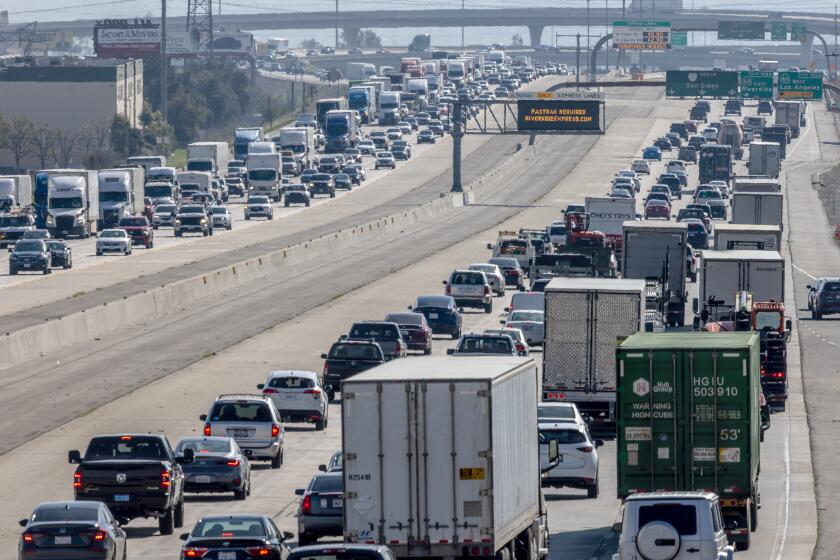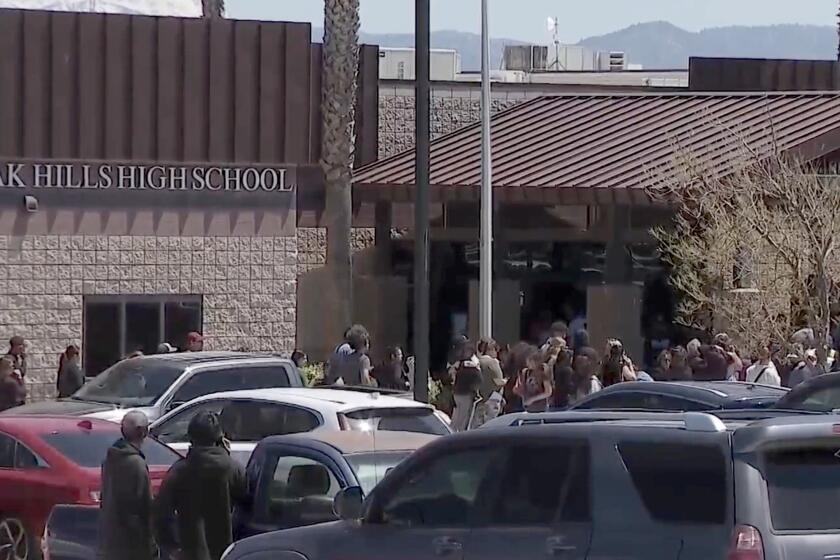Gasoline prices continue their climb in California
Average pump prices kept marching higher in California but eased in some other parts of the nation, the Energy Department said Monday, as oil refused to give up its assault on the historic $100 milestone.
California motorists paid an average of $3.395 for a gallon of self-serve regular gasoline, up 2.9 cents from the week before, according to the Energy Department’s weekly survey of service stations. The state average was 83 cents higher than at this time last year. Prices also edged higher in the Rocky Mountain states and parts of the East Coast.
The U.S. average gasoline price slipped 1.2 cents to $3.099 a gallon, led by a 5.7-cent decline in the Midwest. The national price for regular gasoline is up 86 cents from this time last year and just over 12 cents away from the all-time high of $3.22 set last May
The previous week, the average jumped 13.5 cents in California and 9.8 cents nationwide.
Gasoline prices could hit a new high in coming weeks as soaring crude oil prices near $100 a barrel trickle down to the pump. The Energy Department predicted last week that gasoline prices could rise 20 cents more over the next few weeks.
Demand for gasoline dropped 1.9% to 9.19 million barrels a day in the week ended Nov. 9, according to Energy Department data. Many retailers blame their weaker sales on high energy costs that leave consumers with less money to buy other goods.
In the Energy Department’s latest weekly price survey, gasoline was most expensive on the West Coast, up 2.4 cents to $3.303 a gallon. Among major cities, San Francisco had the highest gasoline costs at $3.506, up 3.6 cents.
The Gulf Coast states had the lowest price by region at $2.969 a gallon, down 1.2 cents. Houston had the cheapest pump price at $2.878 a gallon, up 1.5 cents.
In New York futures trading Monday, crude oil rose 80 cents to $94.64 a barrel. Prices are up 70% from a year earlier.
Crude oil rose after the Organization of the Petroleum Exporting Countries left production unchanged at a weekend meeting in Riyadh, Saudi Arabia. Also contributing were weakness in the U.S. dollar and concerns that supplies could tighten as the U.S. and other countries head into winter.
More to Read
Start your day right
Sign up for Essential California for news, features and recommendations from the L.A. Times and beyond in your inbox six days a week.
You may occasionally receive promotional content from the Los Angeles Times.






